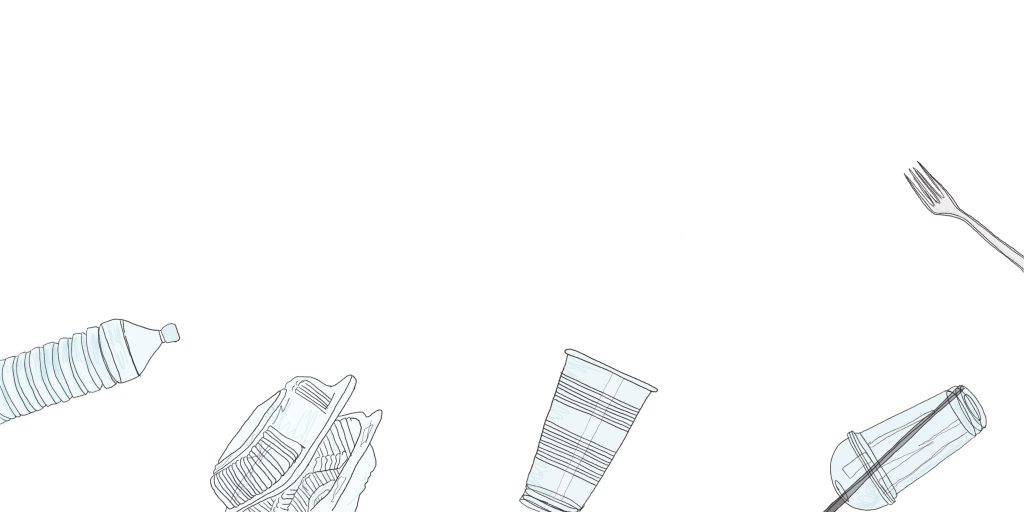NOTE: The use of reusable and personal containers at food services on the University of New Brunswick campus have been temporarily suspended due to concerns over COVID-19.
We all know plastic use is a major issue; the exorbitant amount of plastic that ends up in the oceans poses a huge threat to the planet’s ecosystems and biodiversity. For this reason, reducing plastic use around the world has become very important, and has led different businesses to take action to try to reduce the use of plastic.
Businesses around campus at UNB have been trying to catch up with the problem, and have implemented incentives to reduce plastic waste.
The convenience store located in the Student Union building encourages its customers to bring their own reusable cups by offering a discount for this action. This allows the store to reduce the use of plastic cups and even paper cups, resulting in a win-win situation for both the customer and the business. The convenience store also takes plastic bottles to recycle them. If you have recyclable plastic bottles you can leave them at the convenience store. The store still uses plastic bags, but they have also incorporated the use of paper bags.
Food businesses are major global contributors to the use of plastic. Takeout orders often involve plastic cups, plates, cutlery and straws. According to some estimates, plastic litter from takeout orders contributes approximately 269,000 tonnes of plastic pollution annually.
The food court area in the Atrium has a lot of demand throughout the year, and the food service company Sodexo has also taken action to try to reduce its plastic use and environmental impacts. Tim Thornton, the Sodexo General Manager explained some of their initiatives.
Thornton said their efforts of reducing plastic in Sodexo’s worldwide businesses has been progressive. In the SUB, Sodexo has stopped putting out straws, and encourage their customers to bring their own reusable cutlery. Thronton said they do not sell any reusable cutlery at the moment because the sustainability group on campus was giving it out for free earlier in the year, but the company is looking into it for the upcoming school year. Their business are 100% takeout orders, therefore, diminishing plastic use is quite a task. For this reason, some of the plastic they use is recyclable and some of the cups used for parfaits, vegetables and fruit cups are biodegradable, and all of their paper plates are unbleached and biodegradable.
Thornton mentioned that several years ago a program was implemented that utilizes a reusable meal container. Customers at the Marketplace can purchase the container for $4.99. The containers are hard plastic, dishwasher safe and have three compartments. When a customer brings the container back for a refill, they get their food in a different sanitized container, (the container must be sanitized by Sodexo to meet the Health Department standards). The customers also receive a discount of $0.30 as an incentive.
As for Tim Hortons, Sodexo does not have control over them, and they are required to follow the brand standards. However, they do allow customers to bring reusable mugs. There is a $0.10 incentive for bringing your own mug.




